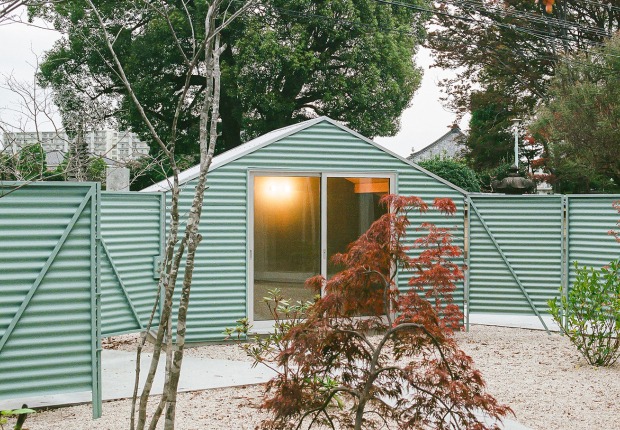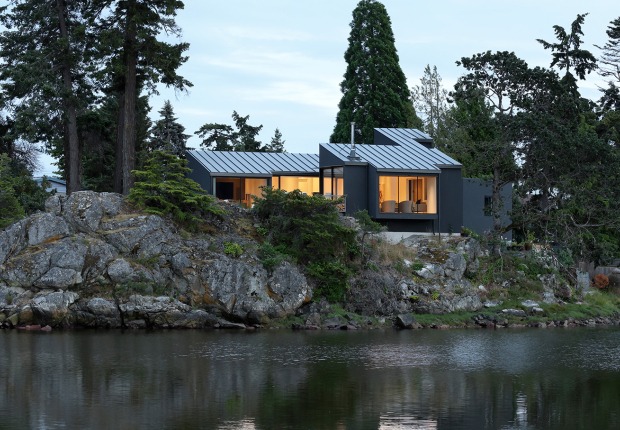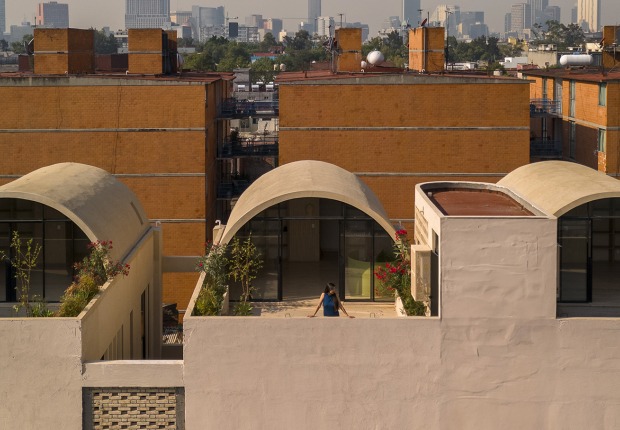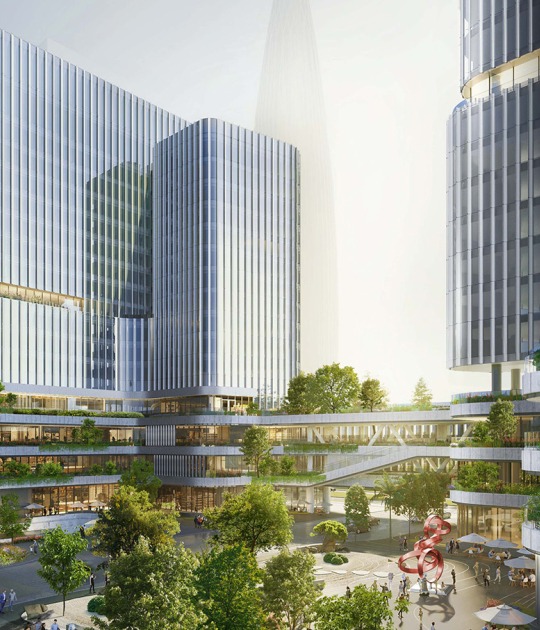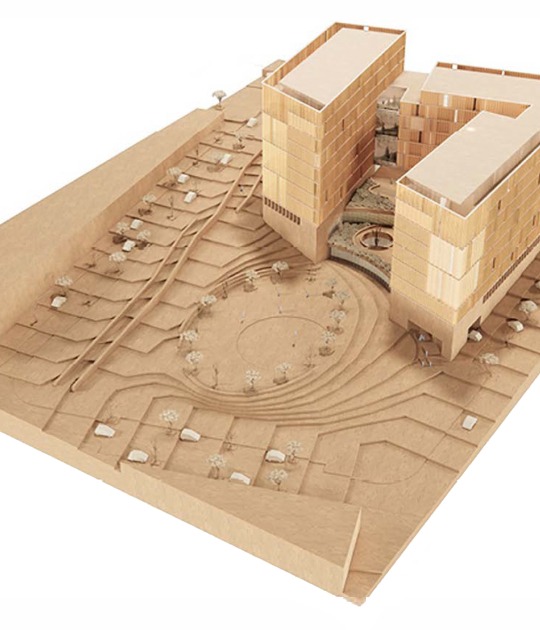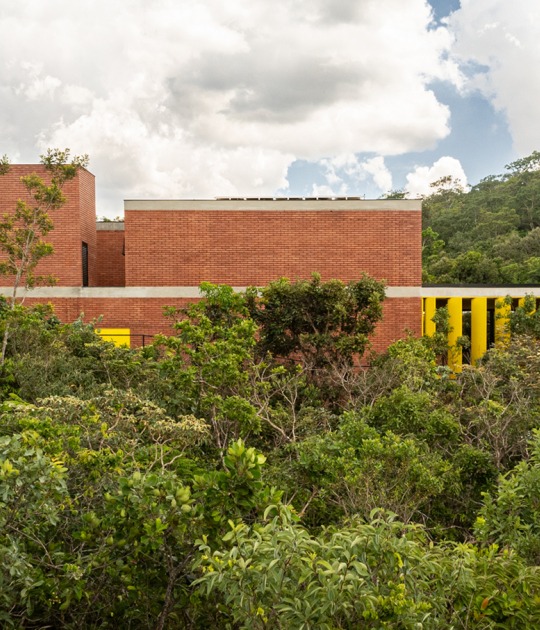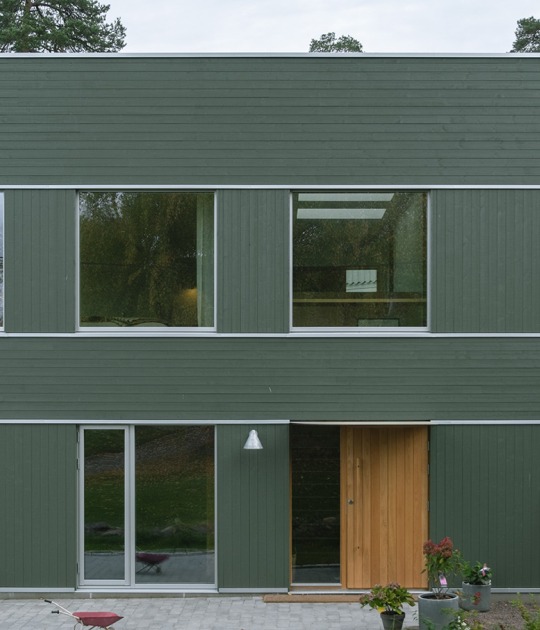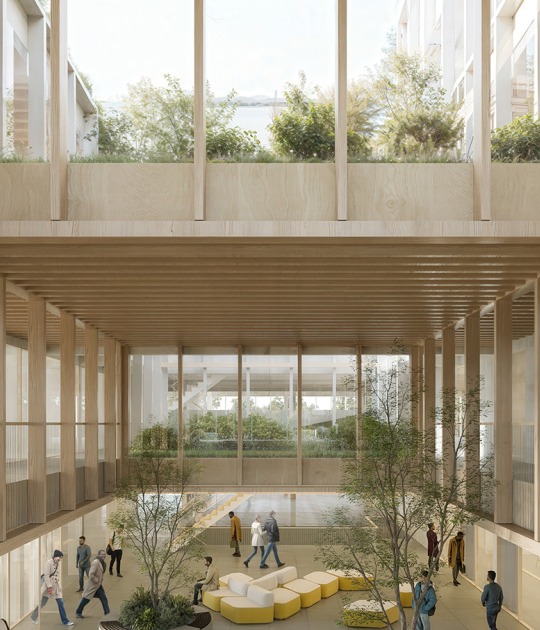“Burial and cremation, as we know them, are dead,” said Miles Gertler, co-director of Common Accounts. “Today's city can no longer afford to keep the material business of death at arm's length, given diminishing land availability, environmental concerns, and the prospect of your digital afterlife.”
Directed by Princeton University graduates Igor Bragado (Spain) and Miles Gertler (Canada), Common Accounts has designed an urban space for a death-savvy city in a traditional Korean courtyard house, which provides infrastructures for fluid cremation remains disposition (which liquefies human remains into a fertile solution), the virtual afterlife, and funeral ceremonies. Working with Seoul-based curator Jihoi Lee, the project is located in the Donuimun Museum Village near Seoul’s Seodaemun Station, the Biennale’s premiere venue for thematic exhibitions.
There are plenty of signs today indicating massive changes in attitudes toward death that remain below the radar of architects, planners, and the death care industry. In the last fifty years, designers have overwhelmingly focused on the poetics of death as a metaphysical concept, disregarding the material business of death’s impact on the shape of the city. Common Accounts’ funeral home embraces the technical as an architectural feature and employs new technologies that do away with the demands on space once required by the cemetery. One of these technologies is an alkaline hydrolysis fluid cremation system designed by Korea’s Supreme Thermal Instrument.
“New technologies present unique opportunities for the production of value—material, ceremonial, and ecological—that shouldn’t be ignored. If we want healthier cities, we need to rethink our relationship to death,” said Igor Bragado, co-director of Common Accounts. “We need new, cleaner, socially productive disposition alternatives that integrate easily with the urban and digital realms.”
Few cities present as fertile a test ground as Seoul. It exhibits a scarcity of available cemetery land typical of many Asian megacities, but is also home to a population that in only a matter of decades has exhibited great flexibility in its funerary traditions. Following the country’s urbanization in the wake of the Korean War, Koreans have rapidly developed new traditions around death geared toward the density of its urban environments, moving away from practices rooted in the home. Nonetheless, the country has faced continued growth of its cities and a shortage of facilities to deal with the dead. The Seoul Metropolitan Area, home to approximately ten million people, has only one cremation facility.
“It is urgent to start a dialogue on this issue in Seoul, where a shortage of facilities and burial space has created a crisis in how we manage death in the city,” said project curator Jihoi Lee. “We can use this crisis to probe death’s productive potential in daily urban life.”
Three Ordinary Funerals brings the funeral back to the architecture of the domestic realm, in a traditional courtyard house. In so doing, it atomizes death-care facilities into the finer grain of the city, promoting a system of neighbourhood funeral homes and remains disposition sites with no emissions.





